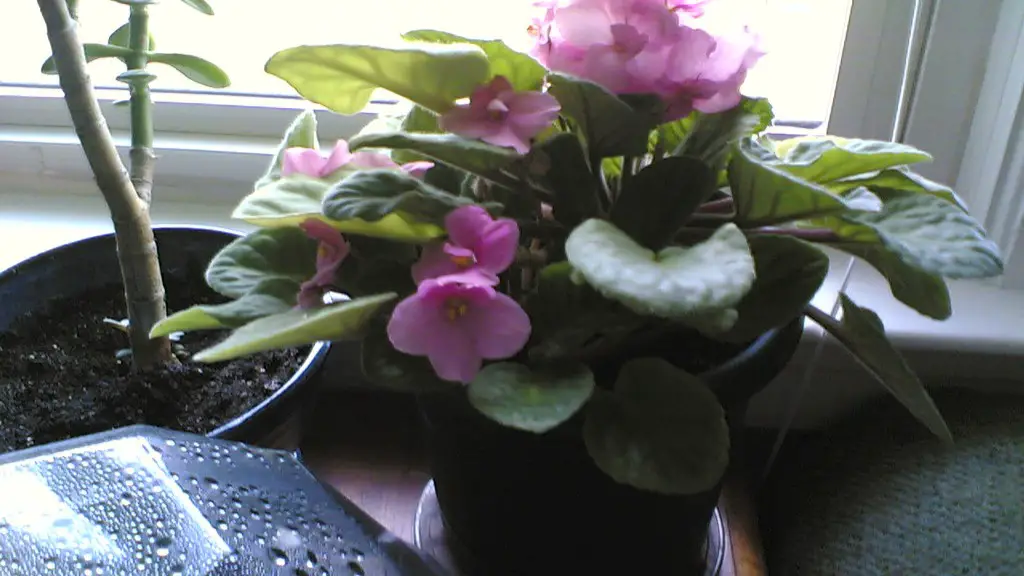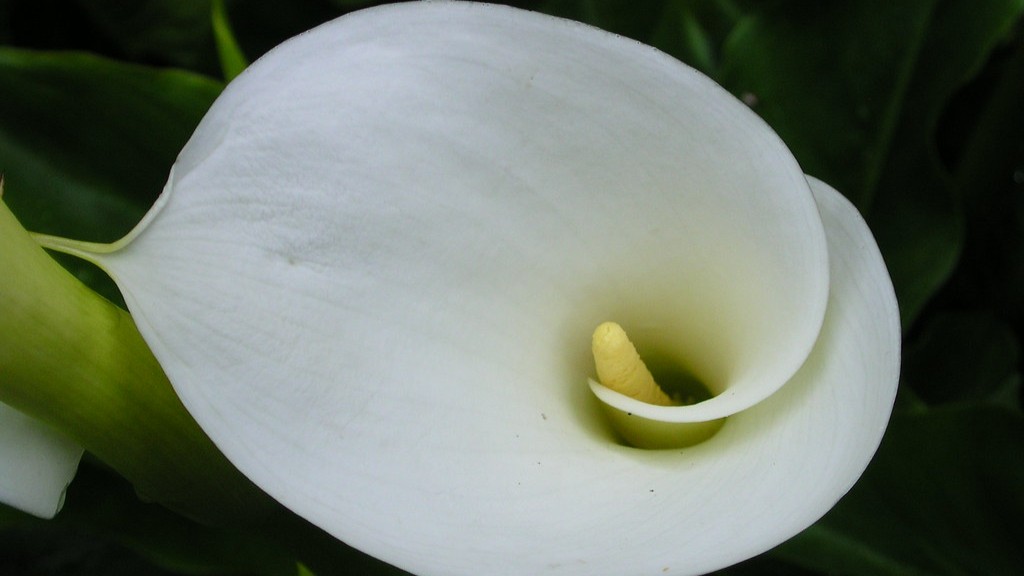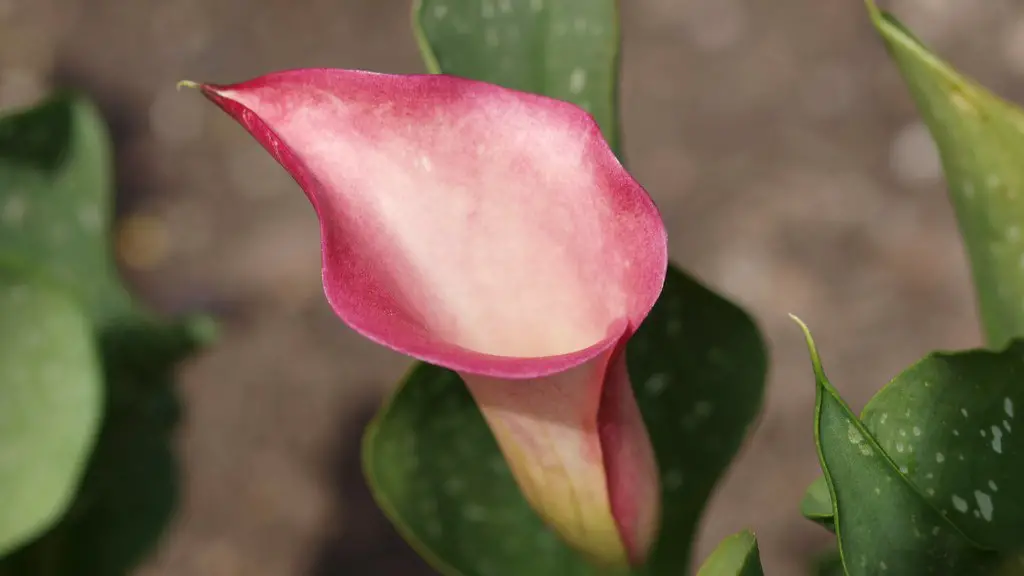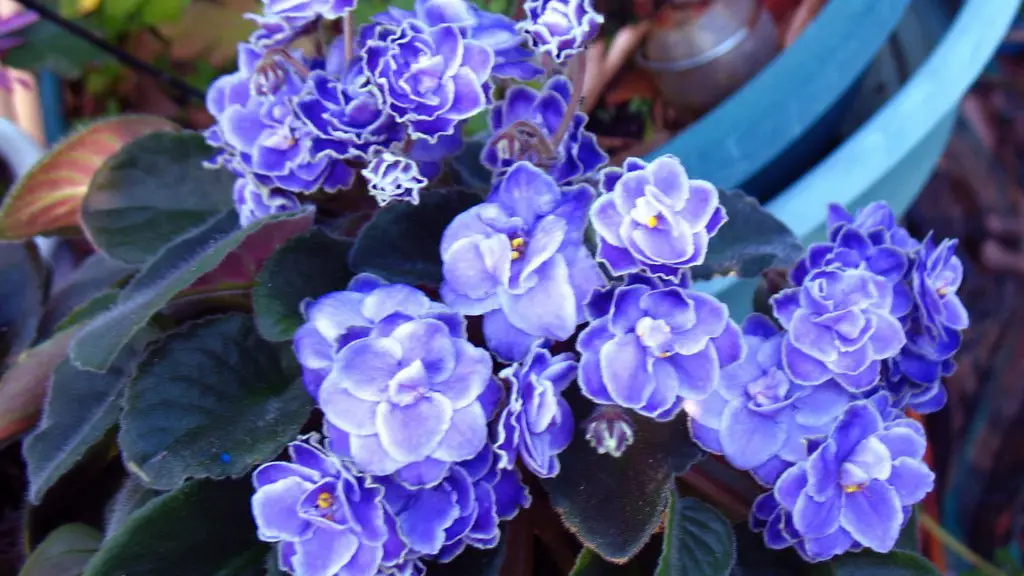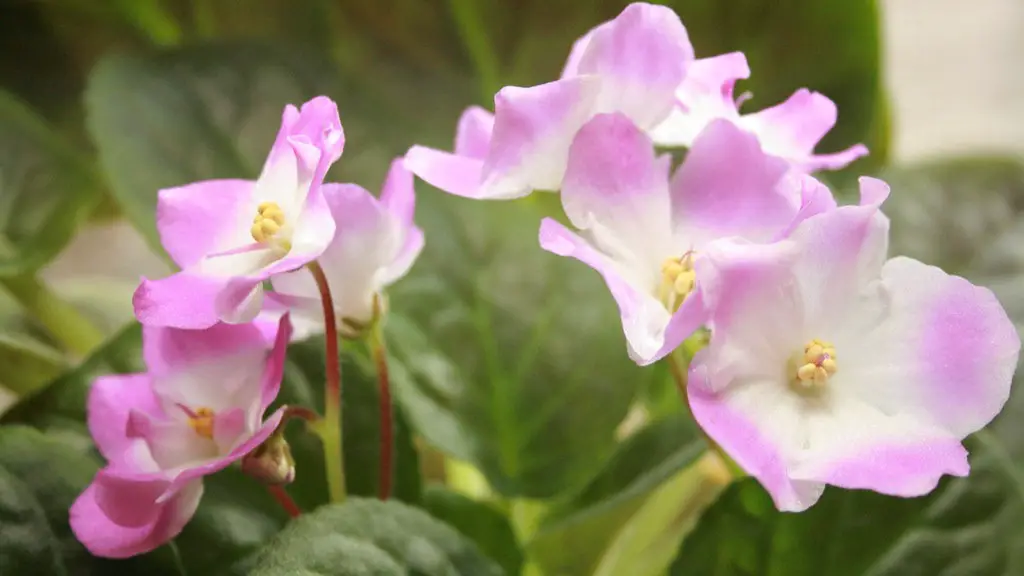If you’re struggling with spider mites on your African violets, don’t worry, there are a few things you can do to get rid of them.Spider mites are tiny pests that suck the juices out of plants, and they can do a lot of damage to your African violets if they’re not controlled. The first step in controlling spider mites is to identify them. They’re tiny, so you may need a magnifying glass. Once you’ve found them, there are a few different ways to get rid of them. You can use an insecticide, or you can try a natural method like using a cotton ball soaked in soapy water. Whichever method you choose, make sure to follow the instructions carefully so that you don’t damage your plants.
Spider mites are a common problem for African violets, but there are a few things you can do to control them. First, make sure the plant is in a well-ventilated room. Second, water the plant regularly and mist the leaves occasionally. Third, clean up any fallen leaves or flowers immediately. Finally, consider using a pesticide specifically designed for spider mites.
What causes mites on African violets?
Cyclamen mites are a type of mite that thrives in humid and cool conditions. They tend to hide in the crown or leaf folds of plants, which can cause damage to the plant if left unchecked. To prevent these mites from damaging your plants, it is important to keep the humidity in your garden at a manageable level and to check your plants regularly for signs of infestation.
Spider mites are a common problem for many gardeners, but there are a few things you can do to control them. Most spider mites can be controlled with insecticidal/miticidal oils and soaps. The oils—both horticultural oil and dormant oil—can be used on a variety of plants, including annuals, perennials, and woody ornamentals. Horticultural oils can be used during the summer, but avoid spraying flowers, as they can be damaged.
What do mites on African violets look like
Cyclamen Mites are tiny arachnids that thrive on African violets. They can be white, yellow, or brown in color, and measure only 1/100 inch. You will probably need a magnifying glass to see them. They can be found on almost all parts of the plant, including leaves, stems, and flowers.
African violets are susceptible to mealy bugs, red spider mites, and gnats. All of these pests can be controlled with the proper care and treatment.
Should I throw away my plant with spider mites?
If you see any of the following signs, your plant is likely infested with spider mites:
-Yellow, stippled, or discolored leaves
-Fine webbing on the undersides of leaves
-Leaves that are curled, distorted, or stunted
-Leaf drop
-A heavy infestation can cause the death of a plant.
If you think your plant might be infested, isolate it from other plants immediately and inspect it closely. Look for tiny moving dots on the undersides of leaves. These are the spider mites.
To get rid of spider mites, you can try using a strong spray of water to knock them off the plant. You can also try using a horticultural oil or insecticidal soap. Be sure to follow the instructions on the label. If the infestation is severe, you might need to use a chemical insecticide.
Spider mites are tiny pests that can cause big problems for your plants. Washing plant foliage using a soft cloth or a forceful spray of lukewarm water can help reduce the spider mite population if done repeatedly. Other control options include treating plants with an insecticide containing permethrin or pyrethrin. Insecticidal soap and horticultural oil are also effective.
What kills spider mites and their eggs?
Miticides are pesticides that are specifically designed to kill mites. Some naturally derived miticides include neem oil, pyrethrins, azadirachtin and horticultural oil. These can be sprayed directly onto adult mites, larvae, nymphs and eggs to kill them on contact. Apply to active spider mite infestations at 3-day intervals until control is achieved.
1. Create a soap solution: Mixing liquid dish soap and water is a DIY way to take care of invasive spider mites as the soap will stick to and suffocate them.
2. Use rubbing alcohol: This can be used as a spot treatment to kill spider mites on contact.
3. Encourage beneficial predators: such as ladybugs, which feed on spider mites.
4. Use neem oil: This is a natural insecticide that can be used to kill spider mites.
5. Spray rosemary oil: This can help to repel spider mites and can also be used as a spot treatment on infested areas.
What kills spider mites in soil
If you have an infestation of spider mites, you can use a chemical pesticide to kill them. Some options include malathion, bifenthrin, cyfluthrin, and kelthane. However, you should only use these as a last resort, after you have tried all other options.
African violets are a beautiful and popular plant, but they can be susceptible to pests and diseases. Neem oil is a natural and effective way to treat both insects and powdery mildew on African violets. Simply mix a few drops of neem oil with water and spray it on the affected leaves. Repeat this treatment every few days until the problem is resolved.
Can you spray insecticide on African violets?
Neem oil is an extract from the neem tree, and has been used as an insecticide in Africa for centuries. The African Violet Society of America recommends using it to treat insect pests on your plants. To use, simply spray the foliage of your plant, and wipe it gently with a soft cloth. Repeat treatments as necessary until symptoms subside.
Alcohol can damage some plants, such as African violets and apple trees. However, it can be used on plants with heavy, waxy leaves that won’t be easily burned. It pays to do a test spray on a few leaves first then wait a few days to ensure the solution won’t destroy the plant.
Do spider mites jump from plant to plant
Spider mites are a big problem because they are so widespread and mobile. They can easily spread from one plant to another and reproduce quickly. This makes it hard to control them and can lead to big problems for your plants.
If you have a spider mite problem, this is a great DIY solution to try! Simply mix apple cider vinegar, water, baking soda and dish soap in a spray bottle and use it on or around your plants. The vinegar and soap will kill the spider mites, while the baking soda will act as a deterrent.
How do you prevent spider mites from spreading to plants?
If you live in an area with a lot of spider mites, it’s important to keep your plants well-watered. Not only will this help your plants stay healthy and better able to fend off attacks, but spider mites tend to avoid moist conditions.
Spider mites are a serious problem for many types of plants. They can cause a lot of damage by eating the leaves of the plant. They can also spread diseases to plants. Spider mites are difficult to control because they can reproduce very quickly. If you have a spider mite problem, you should contact a professional pest control company.
Conclusion
To control spider mites on African violets, first identify if the plant is infested. Look for webbing on the leaves and stems, and for small, slightly raised bumps on the surface of the leaves. If you see these signs, confirmed infestation by bringing a sample of the plant to your local cooperative extension office for positive identification.
Once you have confirmed an infestation, there are a few different treatment options available. You can use a horticultural oil, such as neem oil, which will smother the spider mites. You can also use a biological control, such as the predatory mite Phytoseiulus persimilis, which will feed on the spider mites. Finally, you can use a chemical insecticide, such as pyrethrin.
To prevent infestation in the future, be sure to quarantine new plants before bringing them into your home, and inspect them carefully for any signs of spider mites.
There are a few things you can do to control spider mites on your African violets. First, make sure to keep your plants clean and free of dust. Second, consider using a soil drench or a biweekly spray of neem oil. Third, introduce predators like Phytoseiulus persimilis or Stethorus picipes into your plant’s environment. By following these steps, you should be able to keep your African violets healthy and free of spider mites.
